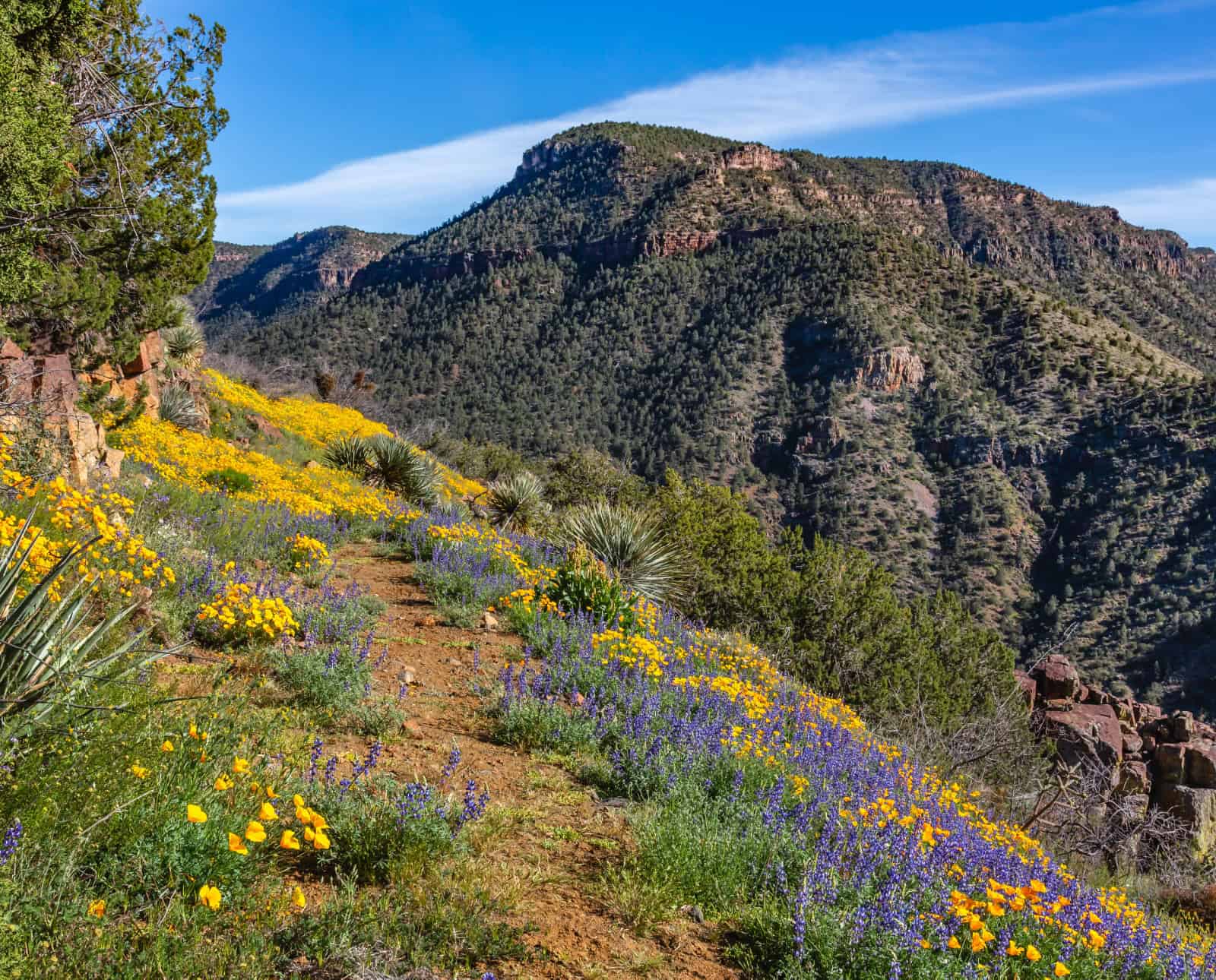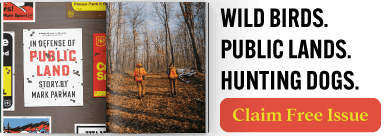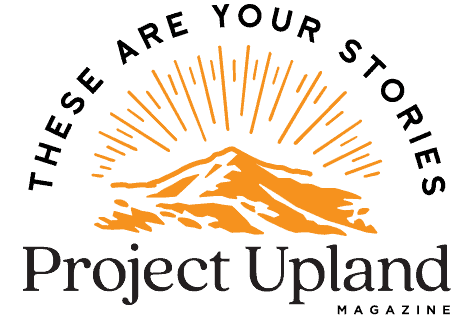Home » Conservation » How to Use Social Media to Effectively Advocate for Public Lands and Conservation
How to Use Social Media to Effectively Advocate for Public Lands and Conservation

A.J. DeRosa, founder of Project Upland, is a New England…
Mandy is a Washington State local who dove into hunting…
Learn some key strategies for using social media to advocate more effectively for public lands, science, and conservation through First Amendment rights on official accounts.
Phone switchboards, emails, and even written letters are being sent right now to combat the proposed sale of more than 3 million acres of public land in the Senate reconciliation package. All of these are important forms of communication—but there is a more public and, in some cases, more effective tool at our fingertips: social media. The more effective use of these channels was inspired by a conversation with Land Tawney of the American Hunters & Anglers Action Network, someone well-versed in public land advocacy.
We’re not talking about the excellent sharing and outcry we’ve already seen online—though that has been wonderful. We’re talking about a more strategic approach that forces elected officials to acknowledge and address the issue directly.
Many elected officials—including senators in this case—have official social media accounts on platforms like Instagram, X (formerly Twitter), Threads, Bluesky, and Facebook. When an account is used in any official capacity—whether to promote political agendas or inform the public about government matters—it becomes a public forum.
This matters because, when an official’s social media is considered a public forum, it becomes unconstitutional for them to delete, censor, or block users based on viewpoint. That’s a violation of our First Amendment rights, and courts have upheld this principle repeatedly.
However, there’s one important caveat: if your post is threatening, uses profanity, violates the platform’s rules, or constitutes spam, it can be deleted. Let’s all remember that civil discourse matters—it means being respectful, even when offering strong and constructive criticism of public policy.
Where to Post
One of the most important aspects of this strategy is that your comment must be on their actual social media accounts. This means posting replies in the comments section—where the public can see them and a permanent record is created.
In many cases, the officials we’re trying to reach aren’t posting about the issue we’re advocating for. In that case, either:
- Reply to the most recent post on a related topic, or
- As a last resort, comment on their most recent post, regardless of the subject.
For example, on Father’s Day, it was easy to make a connection to public lands by commenting that protecting those lands allows fathers to make future memories. While that connection is clear, nothing stops you from commenting on a post about foreign policy with a note about the public land sale. The key is visibility and persistence.
What Type of Comments to Post?
While it’s quick to copy and paste a response, that approach isn’t always effective on social media. When large numbers of people post the exact same comment, it can be flagged as spam. That’s why we haven’t included any prewritten statements here. Instead, we encourage you to craft your own message—authentic and personal. Here are some ideas to help you get started:
- Share a personal story: Talk about a small but meaningful experience you’ve had on public land—whether hunting, hiking, camping, or simply enjoying the outdoors.
- Emphasize shared values: Present public lands as a core American and democratic ideal—something that belongs to all of us.
- Use collective language: Words like our and we reinforce the truth that public lands belong to the American people—not the government, not private interests.
- Think long term: Underscore our obligation to protect these lands for future generations.
- Promote balanced solutions: Acknowledge that there are existing laws that allow for responsible land sales—laws that require public input and ensure benefits to conservation and local communities.
- Dispel the myth of “unused” lands: Remind others that, for hunters and other outdoor users, there is no such thing as remote or unused public land.
Let your voice be unique—grounded in facts, values, and lived experience. That’s how we make the message resonate not only with elected officials, but with the broader public. We want other Americans to feel inspired to care about these lands, too.
Senators Instagram Accounts (Most Important Members to Contact)
This list represents the senators who have not publicly opposed the sale of public lands in the Senate reconciliation package. We will continue to update it as more information becomes available. Feel free to tag us in posts to help us keep this list current as the issue progresses.
| State | Senator | |
| Alabama | Katie Britt | @senkatiebritt |
| Alabama | Tommy Tuberville | @sentuberville |
| Alaska | Lisa Murkowski | @lisa4alaska |
| Alaska | Dan Sullivan | @sen_dansullivan |
| Arkansas | John Boozman | @johnboozman |
| Arkansas | Tom Cotton | @tomcottonar |
| Florida | Rick Scott | @flsenrickscott |
| Florida | Ashley Moody | @ashleymoodyfl |
| Indiana | Jim Banks | @senjimbanks |
| Indiana | Todd Young | @sentoddyoung |
| Iowa | Chuck Grassley | @SenatorChuckGrassley |
| Iowa | Joni Ernst | @senjoniernst |
| Kansas | Jerry Moran | @sen.jerrymoran |
| Kansas | Roger Marshall | @senrogermarshall |
| Kentucky | Mitch McConnell | @leadermcconnell |
| Kentucky | Rand Paul | @drrandpaul |
| Louisiana | Bill Cassidy | @senbillcassidy |
| Louisiana | John Kennedy | @senjohnkennedy |
| Maine | Susan Collins | @sensusancollins |
| Mississippi | Roger Wicker | @senatorwicker |
| Mississippi | Cindy Hyde-Smith | @sencindyhydesmith |
| Missouri | Josh Hawley | @senatorhawley |
| Missouri | Eric Schmitt | @senericschmitt |
| Montana | Steve Daines | @stevedaines |
| Montana | Tim Sheehy | @timsheehymt |
| Nebraska | Deb Fischer | @senatorfischer |
| Nebraska | Pete Ricketts | @senatorricketts |
| North Carolina | Thom Tillis | @senthomtillis |
| North Carolina | Ted Budd | @sentedbudd |
| North Dakota | Kevin Cramer | @senatorkevincramer |
| North Dakota | John Hoeven | @senjohnhoeven |
| Ohio | Bernie Moreno | @berniemorenoforohio |
| Ohio | Jon Husted | @senjonhusted |
| Oklahoma | James Lankford | @senatorlankford |
| Oklahoma | Markwayne Mullin | @senmullin |
| Pennsylvania | David McCormick | @senmccormickpa |
| South Carolina | Lindsey Graham | @lindseygrahamsc |
| South Carolina | Tim Scott | @SenatorTimScott |
| South Dakota | Mike Rounds | @senatorrounds |
| South Dakota | John Thune | @leaderjohnthune |
| Tennessee | Marsha Blackburn | @marshablackburn |
| Tennessee | Bill Hagerty | @senatorhagerty |
| Texas | John Cornyn | @johncornyn |
| Texas | Ted Cruz | @sentedcruz |
| Utah | Mike Lee | @senmikelee |
| Utah | John Curtis | @senjohncurtis |
| West Virginia | Shelley Moore Capito | @sencapito |
| West Virginia | Jim Justice | @senjimjustice |
| Wisconsin | Ron Johnson | @senronjohnson |
| Wyoming | John Barrasso | @senjohnbarrasso |
| Wyoming | Cynthia Lummis | @sencynthialummis |
Can Personal Social Media Accounts of Elected Officials Matter?
Yes, they can.
In March 2024, the Supreme Court ruled in two key cases—Lindke v. Freed and O’Connor-Ratcliff v. Garnier—that a personal account can be considered an official account if two conditions are met:
- The official has actual authority to speak on behalf of the government.
- The official purports to exercise that authority in the posts.
If both are true, then the account is subject to First Amendment protections—and deleting or blocking based on viewpoint may be unconstitutional.
A.J. DeRosa, founder of Project Upland, is a New England native with over 35 years of hunting experience across three continents. His passion for upland birds and side-by-side shotguns has taken him around the world, uncovering the stories of people and places connected to the uplands. First published in 2004, he wrote The Urban Deer Complex in 2014 and soon discovered a love for filmmaking, which led to the award-winning Project Upland film series. A.J.'s dedication to wildlife drives his advocacy for conservation policy and habitat funding at both federal and state levels. He serves as Vice Chair of the New Hampshire Fish & Game Commission, giving back to his community. You can often find A.J. and his Wirehaired Pointing Griffon, Grim, hunting in the mountains of New England—or wherever the birds lead them.
Mandy is a Washington State local who dove into hunting as an adult, thanks to her German Shorthaired Pointer, Cash. For the past five years, she has spent all of her free time chasing upland birds and big game throughout the seasons. She also volunteers on the Washington BHA board as the communications lead, helping to share the importance of public lands, hunting, and conservation—with the goal of protecting and perpetuating the opportunities we all find in the pursuit of wild game.



